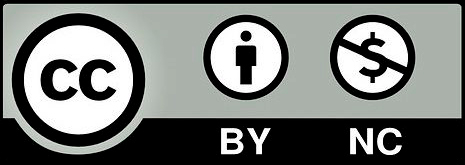
Related Glossary:
-
Coupon:
When we talk about deposits, the coupon is the final return on the product, i.e. the total percentage that can be earned on the capital invested. -
Credit:
The bank grants a maximum limit of money and the customer can draw on this money according to his or her needs at any given time. That is, you could use all the money granted, only part of it, or none at all. Interest is only paid on the amount used (although there may be fees for the undrawn balance), and as you repay the money you can continue to draw more as long as you do not exceed the limit granted. The usual ways of obtaining financing through credit are "credit cards", "credit facility" or "credit line", which is articulated through a current account. -
Foreign currency account:
A foreign currency bank account is an account that operates in a currency different from the euro. -
Indebtedness:
It is the action of becoming indebted. Indebtedness is the set of payment obligations (debts) owed by a person or a company to a third party, which may be an institution (such as a bank), a company or another person. -
Linked deposits:
The linked deposits are investment banking products: you deposit capital in the bank and in exchange it offers a profitability. However, in this type of deposit, the final remuneration will always be linked to the evolution of a stock market share, an index (e.g. Ibex35, Eurostoxx, etc.), an interest rate (e.g. Euribor) or an exchange rate (e.g. euro-dollar). -
Loan:
A bank loan is the operation whereby the bank lends a certain amount of money, previously stipulated in a contract, to a client. After the agreed time has elapsed, the client must return the capital loaned, as well as the interest previously agreed with the bank. -
Mixed savings-investment deposit:
Mixed or dual deposits are a combination of fixed-term deposits and index-linked deposits. In this case, part of the capital is placed in a fixed-term deposit for a certain period of time and at a certain interest rate. -
Mortgage loan:
These are loans intended to finance the purchase or restoration of a home. This type of financing, in addition to involving larger amounts of money than personal loans, has a real guarantee for the bank. In other words, if the client does not return the loan, the bank can sell the mortgaged property to repay the debt or become the owner of the property. Thus, as it has an effective guarantee, it is one of the safest loan operations for the entity that grants it and, consequently, the interest rate applied is lower than that of a personal loan. -
Personal loan:
This type of loan is normally used for the purchase of consumer goods and services: a car, a computer, furnishing the house, going on holiday, studying abroad... They are called personal loans because they have our present and future personal guarantee. This means that the bank bases the loan on the customer's commitment to pay. It can also include guarantors. Due to the high risk involved in this operation, they usually have a high interest rate. -
Reverse mortgage:
This is a loan secured by a mortgage on the habitual residence, granted in one lump sum or through periodic payments, to a person who must be over a certain age - from 65 years old - or prove a degree of disability (equal to or greater than 33%) or dependence (severe or great dependence), and cannot be repaid until the time of death. - See all terms
Keywords
Reverse mortgage, linked deposits, foreign currency accounts
Objectives:
- To give an overview of some special financing and investment products.
Description:
- Understanding how reverse mortgages work.
- Understanding how structured deposits work.
Bibliography
- https://clientebancario.bde.es
- https://www.bancosantander.es/particulares/hipotecas/hipoteca-inversa
- https://www.finect.com/usuario/Josetrecet/articulos/hipoteca-inversa
- https://www.ebnbanco.com/blog/depositos-estructurados-que-son-y-que-ventajas-tienen/
- https://finanzas.roams.es/depositos/depositos-estructurados/
- https://www.bankinter.com/blog/mercados/depositos-estructurados-que-son
- https://www.helpmycash.com/depositos/estructurados/
- https://www.raisin.es/depositos/depositos-estructurados/
- https://www.investopedia.com/guide-to-financial-literacy-4800530
- Financial Guide "Learn how to make better financial decisions" (Edufinet).
- https://economictimes.indiatimes.com/definition
- https://banzai.org/
- https://handsonbanking.org/
- https://www.rockethq.com/learn
-
Related training material
- Savings products: deposits
- Financing options, credits and loans
- Family / personal budget management
 Special products (i.e.: reverse mortgage)
Special products (i.e.: reverse mortgage) Click to read
Click to read 








